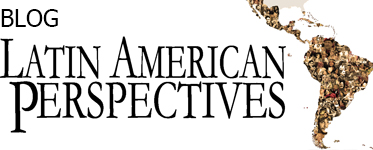Austeridad Republicana and Contradictions in Mexico’s Response to COVID-19
By Andrew R. Smolski, Doctoral Candidate in the Department of Sociology and Anthropology at North Carolina State University and member of the Latin American Perspectives editorial collective. — May 18, 2020 On May 3rd, 2020, Andrés Manuel López Obrador (AMLO) published “Algunas lecciones de la pandemia COVID-19”. In this brief document, the President of Mexico makes clear that neoliberal policies, such as privatization and austerity for public universities, have led to a crisis in public health exacerbated by the pandemic. AMLO has consistently pointed to four decades of neoliberalization as creating many of the ills Mexico confronts, from a majority of the population employed in the informal sector to almost a majority of the country living in poverty. And he is not wrong. For instance, in public health neoliberalization has had a major negative impact. Since the late 1990s, Mexican public health institutions, like the Instituto Mexicano del Seguro Social (IMSS), have seen market reforms that reduced the amount and quality of care. This is the case, even while healthcare expenditures increased in Mexico since 2000. So, you have reductions in care with increasing costs and poorer outcomes. In 2006, a year before the drug war began in earnest, life [...]

